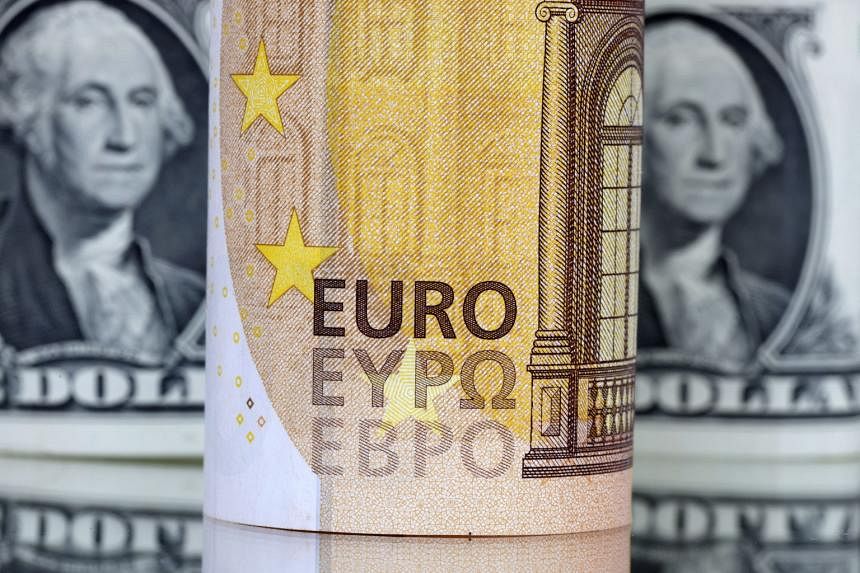LONDON (BLOOMBERG) - The European Central Bank's (ECB) battle to restore its credibility with financial markets just got a whole lot harder.
Just 16 per cent of 792 respondents in the latest MLIV Pulse survey say Europe will likely manage to dodge an economic downturn over the next six months, with 69 per cent betting that the euro will slide to 90 US cents rather than claw back to US$1.1.
To make matters worse, the political storm in Italy, the euro area's third-largest economy, may spur a new era of market fragmentation.
All told, 41 per cent of respondents, which include portfolio managers and retail traders, see a debt crisis within the next six months - a massive shift from the era of negative yields that engulfed the region as recently as early January.
These warnings could not come at a worse time for the ECB. It looks poised to raise interest rates this week at long last - just as Russia threatens to escalate the energy crisis, with inflation already at records.
"I think expectations of a recession have ramped up quite quickly on the possibility of gas rationing, and if that plays out, you could see a lot of companies go to the wall," said Mr Craig Inches, head of rates and cash at Royal London Asset Management.
Elevated price pressures have taken a big toll on households and companies. Now, fears are rising over a full-scale halt in Russian gas shipments once maintenance on a major pipeline finishes around July 21. It is the same day the ECB is seen raising rates for the first time in more than a decade, while potentially unveiling a novel policy tool to fix the growing cracks in the bond market.
The central bank was forced last month to pledge a new market backstop that could buffer member countries against financial turmoil like that seen during a debt crisis more than a decade ago. This was after the yield on Italy's 10-year debt rocketed above 4 per cent. With Prime Minister Mario Draghi's ruling coalition in tatters, the challenge for monetary officials is only getting harder.
ECB president Christine Lagarde has indicated that the backstop would be deployed if borrowing costs for weaker nations rise too far or too fast and would entail further bond purchases.
Nearly half of MLIV respondents see the ECB intervening once Italy's yield premium over Germany reaches 450 basis points or more - way beyond the 250-basis point threshold cited by analysts earlier this year.
The good news is that 59 per cent of respondents said they do not expect a debt crisis in the euro zone in the next six months, and the majority see a gas cut-off as the most likely catalyst should things go awry.
But Russian energy giant Gazprom, which already slashed supplies through the Nord Stream pipeline to just 40 per cent of its capacity, has hinted at further export disruptions. In turn, investor confidence in Germany's economy has slumped to the lowest since 2011, with Deutsche Bank projecting that Europe's largest economy will contract 1 per cent in 2023.
Three-fifths of respondents see the ECB pausing rate hikes in the dire event Russia switches off its gas supplies. This offers some comfort that Ms Lagarde and colleagues would avoid exacerbating an economic downturn in the event of such an energy shock.
Whatever happens, the euro's bout of historic pain is set to endure. Strategists at Nomura Holdings, UBS Group and BCA Research see it plunging as low as 90 United States cents by the winter in a worst-case scenario, reflecting the view of most MLIV readers that a slump is more likely than a recovery.

